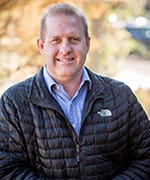Securing supply-chain consistency during the coronavirus crisis
As COVID-19 continues to disrupt the conventional food supply, natural products brands have found ways to support distributors, customers and consumers.
June 3, 2020

During the third month of the coronavirus crisis, the food system's supply chain problems—workers falling ill in conventional meatpacking plants, crops wasting in the fields and dairy farmers dumping milk—alarmed Americans.
Despite—or perhaps a result of—President Trump's invocation of the Defense Production Act to keep the nation's meatpacking plants open, COVID-19 spread throughout the system. The nonprofit Food & Environment Reporting Network (FERN) reported on June 1 that, at a minimum:
253 meatpacking and food processing plants and 34 farms and production facilities have confirmed cases of COVID-19.
One meatpacking and four food processing plants are closed due to the virus.
23,157 food supply workers—20,277 in meatpacking, 1,474 in food processing and 1,406 in farming—have tested positive for COVID-19.
79 have died—71 in meatpacking, six in food processing, two in farming.
While consumers are buying more to cook at home, triggering a rise in food prices, the institutional food market collapsed.
"When you have the shutdown very suddenly of institutional food settings such as restaurants, schools, colleges and others, then that causes a misalignment in supply," USDA Secretary Sonny Perdue said in mid-May on National Public Radio’s Morning Edition.
In that radio appearance, Perdue promoted a $3 billion plan to establish a national CSA-style (community supported agriculture) program through which distributors and wholesalers provide pre-approved boxes of produce, dairy and meat to food banks and nonprofits that serve people in need.
When asked why the government isn’t giving people more money for food through the SNAP program, Perdue responded, "That may help one side of the equation…It does not help those farmers and producers who have grown this food. They cannot make it to market because the supply chain they’ve been used to dealing with—the institutional food market—is no longer there."
While the USDA attempts to fast-track a direct distribution program, traditional CSA programs, in which consumer members buy a share of a farm’s often organic harvest, are surging across the country, including record membership signups and waiting lists, NPR reported May 10.
Is the supply chain broken or stressed?
Tyson Foods' Chairman John Tyson warned in late April that "the food supply chain is breaking," but Abe Eshkenazi, CEO of the Association for Supply Chain Management, disagreed.
"From our perspective we don’t think the food supply chain is broken as much as it is stressed," he told Supermarket News, one of New Hope’s sister websites, in mid-May.
"It's taken a while for the supply chains to respond to the spike in demand, but it's also critical that we recognize that this is a spike," Eshkenazi said. "This is not a new demand signal at that level…It's just that we're seeing a shift in terms of where the demand is being sensed right now, and that is in a home-based environment."
Natural products manufacturers: Necessity is the mother of invention
Meanwhile, natural and organic producers and manufacturers are innovating and adapting. Because they are nimble, natural companies are working to ensure a consistent supply chain for their retail and distribution customers. A few leading manufacturers and industry experts shared how they are handling supply chain challenges during the coronavirus crisis.

Carla Bartolucci and her husband, Rodolfo, founded the certified organic brands Jovial Foods and Bionaturae. The company is based in Connecticut but the main ingredients—wheat, the ancient grain einkorn, tomatoes and more—are sourced in Italy, where the finished products are manufactured. The company’s pastas, tomato sauces, juices, fruit spreads, cookies have been in high demand.
"We were definitely caught off guard with the increase in sales we saw in flour, pasta and shelf-stable products. I can tell you, for the first time in 25 years there was a day when our warehouse in Connecticut was completely empty," Carla Bartolucci says.
Production was affected due to limited availability of a special compostable window used in packaging and the need to queue up with contract manufacturers in Europe. The company also used all the raw materials its contracted farmers could produce. "We will be sourcing from outside of our network come July and August," Bartolucci says.
Distribution costs also rose, she says.
"The volume of demand made us ship out containers that weren’t completely full…We are still producing and loading twice as much product as we normally would have, but not three times as much, so we can fill the containers more efficiently again," she says.

Rhythm Superfoods, an innovator in plant-based fruit and vegetable snacks, secured its supply chain well before the COVID-19 crisis hit, and it's paying off, says founder and CEO Scott Jensen. The company—which requires the freshest product delivered consistently for its dried kale, beet, carrot, dried fruit and other certified organic snacks—decided to shift its sourcing from the U.S. because of weather issues. The company began working with four farming families in the north-central region of Mexico.
"We own two facilities in Guadalajara. Our farmers are all within a two- to three-hour drive to our production plant, and they are situated at different elevations, so we are able to produce all we need," Jensen says. "For Rhythm Superfoods, we need fresh, consistent, organic deliveries, and in that particular region of Mexico, they grow year round and our farmers are really good at growing a mix of crops."
Jensen says his farmers have been impacted by the pandemic, as they grow for the food service market, too.
"If we lost 50% of consumption of vegetables in food service, that hasn't all shifted to retail; consumers don't cook as many fresh vegetables at home as the chefs and restaurants who use a lot of fresh produce. As a result, all our farmers are recalibrating their plans for the growing season," he says.
 Pete Speranza, co-founder, 301INC / General Mills
Pete Speranza, co-founder, 301INC / General Mills
A former professional hockey player, Pete Speranza has helped create a national scouting network for emerging natural and organic products brands, and he works closely with the entrepreneurs behind them.
"What we’ve been telling our brands is that while external forces have changed, food values aren’t changing," Speranza says. "Coming out of this, people will still eat more at home, and they may be looking for more nutrient-dense foods to support healthy immune systems.
"From a supply-chain perspective, from the meat to the grain industry, we are moving beyond a commodity approach, where the farmer got paid the same price per bushel no matter the quality. Today, businesses are having to create supply chains that are nimbler to handle smaller producers. This will accelerate. People want transparency, higher quality and nutritious foods," Speranza says.
One challenge smaller brands face is that consumers spend less time in grocery stores. "People are not browsing right now. They’re creating a list, getting their essentials, and there’s less impulse buying and discovery, which is what these new brands need." Speranza advises the brands he works with to be open to all sales channels and to use social media to educate consumers.
"Before COVID, everyone had their own zone and the supply chain was much more transactional," he observes. "Yet, every part of that supply chain became nimble overnight. As a result, our brands will come out with stronger relationships with ingredient suppliers, co-packers and customers. This will bring some advantages in the future, as people may see they were more rigid than they needed to be, and that it may be more resilient to be nimble.
"In the next 10 months, efficiencies may be less because forecasts won’t be as accurate. We will need to build new data sets," Speranza says.

For more than 40 years, Frontier Co-op has been a leader in natural and organic herbs and spices, sourcing more than 800 raw materials from more than 50 countries.
"Needless to say, it made for a fluid, dynamic situation when COVID-19 hit; it was almost like watching dominoes fall when it hit China, then Southeast Asia, then Europe and then the U.S.," says Cole Daily, Frontier’s EVP of Operations.
"Because the spice industry is uniquely vulnerable to outside forces, we have built a resilient supply chain by having alternative sources," Daily says. "When you are sourcing from over 50 countries, something is bound to go wrong. As such, we are always planning for contingencies, but this is at a scale that is absolutely unprecedented."
It hasn’t been so much a raw materials issue, he says, as it has been skyrocketing demand; company sales were up 100% for the latest four weeks in April, based on SPINS data.
"The squeeze has been on the packaging side of things. After everyone emptied the shelves during the pantry loading period, refilling them has been a bit of a challenge…We’ve added new manufacturing lines and we are pretty much working nonstop to meet the overwhelming demand," Daily says.
Frontier Co-op deals directly with farmers because, "We don’t want the inventory sitting overseas. We want it in our warehouse," Daily says. "In general, we go a little heavier on our inventories, which has helped in the current situation. Our suppliers are increasing their capacity right along with us and making sure they do it in a safe manner, but the $64,000 question is, how do we forecast right now? We’re doing our best to plan now for all types of products and to make sure we are out ahead of the demand."

"Before the COVID crisis, products including soup and cereal were slow. Now, there’s a joke that there’s no ramen available in the distribution centers," says Nikki Nolbertowicz.
When distributors have to solve out-of-stock situations, it can create opportunities for other brands, she notes. "For example, a distributor might try to bring other rice brands in, or find alternative products to fulfill current demand," she says. "Consumers, too, are either trying other brands or new products, or looking online."
Over the past few months, distributors Nolbertowicz works with in e-commerce sales have seen an uptick three times their standard volume. They could have sold more if they weren’t out of stock on certain items, she says.
For brick and mortar stores, shopping habits have changed—consumers want to make fewer stops, so the average basket amount has gone up, Nolbertowicz observes. "There’ll be limited travel this summer and the kids will be home more with many activities being cancelled or delayed, so there will be more meals at home.
"Later in the year, many people will look to do more with less for the upcoming holidays with their families. Distributors are starting to think about that now," she says.
Overall, she notes, the industry has responded impressively to the pandemic. "I give everyone we work with—distributors, retailers, manufacturers—a lot of credit. Under the circumstances, they’ve done an amazing job and have been flexible, nimble and have upped their communications game. Getting the message out is more important than ever; with none, there is chaos."

As a small-scale, certified-organic, grass-fed dairy producer, Kalona SuperNatural has built resiliency into its supply chain by working not only with its own community of Amish and Mennonite dairy farmers in eastern Iowa, but also by sourcing and brokering organic milk from throughout the nation, says Bill Evans, CEO and founder of the company.
The growing brand found itself at an advantage when the COVID-19 crisis struck because its sales are primarily in natural products grocery stores. "The conventional guys are having issues because they’ve got a large portion of their manufacturing set up for food service; there’s no place for that to go right now," Evans says.
Since the pandemic began, Kalona has been filling distributors’ large orders. "We’ve been able to accommodate a 25-30% increase in sales volume, whereas larger producers are shorting people. Kalona SuperNatural has been more successful than others in balancing our organic milk supply," he says.
In addition to its own production facilities, Kalona owns its own trucking company— a big advantage in getting deliveries out.
"We have workers that have to be here to bottle milk and load and drive trucks. We’ve been taking all precautions and those folks have felt safe coming to work. What I’m most proud about is that our team has stuck together and gotten the job done," he says.

After successfully building Fantasia, a leading natural juice brand that merged with Naked Juice and was subsequently acquired by PepsiCo, Brad Barnhorn has been advising CEOs and serving on numerous boards in the natural products industry.
To focus resources on the most popular products and reduce the risk of out of stocks at the shelf, some manufacturers have stopped producing lower velocity SKUs. Similarly, retailers might not be interested in stocking products with lower velocities. But eliminating SKUs, even temporarily, might not be the best move for all brands, he says. It's a tricky, nuanced decision that needs to balance both short-term and long-term considerations.
"If you’re a company with sales north of $50 million or $100 million that has great brand equity, that allows for flexibility to temporarily stop some SKUs," Barnhorn says. "The tough space is when you are a mid-sized company—say in the $15 million to $20 million range—odds are, if you take some SKUs out, you might not get them back in the stores. That might not be the right decision, strategically. If you’re a small brand, you might not have the market power to bring the SKUs back," Barnhorn says.
So what does he advise? "I might make the decision as a small company to change my production schedules. Maybe I produce the item less frequently but with higher inventory levels, try to find ways to reduce complexity, have more efficient runs and take a risk on higher inventory," Barnhorn says.
Distributors have been more flexible with brands when it comes to receiving product, he notes.
"It is essential to be in close contact with your distributors on an ongoing basis to understand…elements of working with them that may have been altered in this unique period to provide companies a measure of operating flexibility," he says.
Barnhorn advises, "If you have not audited your supply chain in the past two to three years because things have been going on as normal, it’s time to analyze, talk to other manufacturers and co-packers, get up to date on the flexibility and options you have in your supply chain. Take this moment of urgency to have these conversations."

As CEO of the largest trade association representing the natural products industry, Daniel Fabricant is concerned about fraudulent products as consumer flock to dietary supplements to strengthen immunity and health. "Elderberry is very popular right now. There is such consumer demand and the margins are so big that we are starting to see adulterated product come out. We may see many more fakes in the market because that’s where the demand is," Fabricant warns. It’s best, he says, to keep with the brands you’ve always carried.
On the plus side, 70% of Americans use supplements and many will be adding supplements such as vitamins C and D to their regimen. However, the sports nutrition category has taken a big hit as gyms have closed down, Fabricant says.
"The supply chain in the next five to 10 years is going to be a very fast moving target…Also, while people say that everything is going to the internet, there is still strong interest in going to stores; people want to go to independent retailers. Most importantly," he says, "as an industry, we always have to stay engaged. We are an essential business, and that messaging should never stop."
Steven Hoffman is managing director of Compass Natural, providing brand marketing, PR, social media, and strategic business development services to natural, organic and sustainable products businesses. Contact [email protected]
Have some big ideas or thoughts to share related to the natural products industry? We’d love to hear and publish your opinions in the newhope.com IdeaXchange. Check out our submission guidelines.
About the Author(s)
You May Also Like




